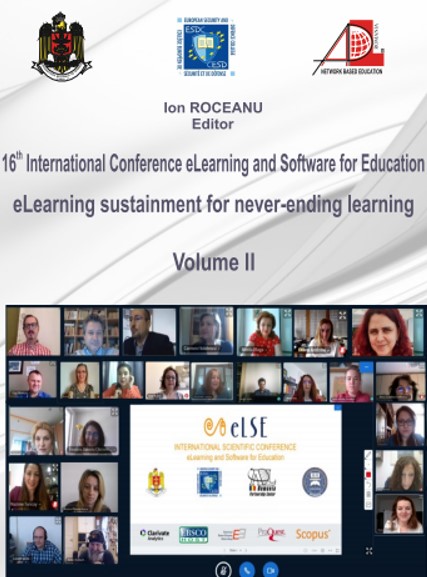AN INVESTIGATION OF MIND-CONTROLLED PROSTHETIC ARM INTELLIGENT SYSTEM
AN INVESTIGATION OF MIND-CONTROLLED PROSTHETIC ARM INTELLIGENT SYSTEM
Author(s): Haider Abdullah Ali, Nicolae Goga, Constantin Viorel Marian, Liwa Abdullah AliSubject(s): Higher Education , Neuropsychology, Health and medicine and law, ICT Information and Communications Technologies
Published by: Carol I National Defence University Publishing House
Keywords: Brain Computer Interface (BCI); EEG; prosthetic; e-learning;
Summary/Abstract: Brain-Computer Interface (BCI) is a connection path that directly connects the system of central nervous with external devices without the peripheral nerves reliance. The applications of BCI attain beyond medical applications where it used to improve the life of patients. Many achievements were established during the latest years in the prosthetics field particularly using the latest achievements of technology into these products. However, some problems have emerged in the prosthetics like being cost-expensive, difficult to install and maintain, or the need for invasive procedures. The medical issue here is the need to develop an affordable and functional prosthetic arm that has an intuitive and natural control that permits the patient to adapt effortlessly to his/her new limb. In this paper, the average band power of brainwaves is successfully extracted from the brain of the subject using the EMOTIV™ Insight headset. We intend to develop low-cost, accurate, easy to use and smart functional upper body prosthetic arm controlled by non-invasive BCI and made of lightweight materials aiming to give the patients comfortable and easiness to handle the artificial arm. The arm will be controlled through commands of the brain obtained by an electroencephalography (EEG) headset without any surgical invasion. The system will be used by the patients who will learn how to train and control the prosthetic using their brain commands. The prosthetic arm can be considered as an e-learning system for educational purposes for persons that are in touch with some medical fields such as medical students, medical engineering students, physicians, researchers, etc., who needs to study the technology of prosthetics in an easy approach and to set goals for such systems.
Journal: Conference proceedings of »eLearning and Software for Education« (eLSE)
- Issue Year: 16/2020
- Issue No: 02
- Page Range: 17-26
- Page Count: 10
- Language: English

